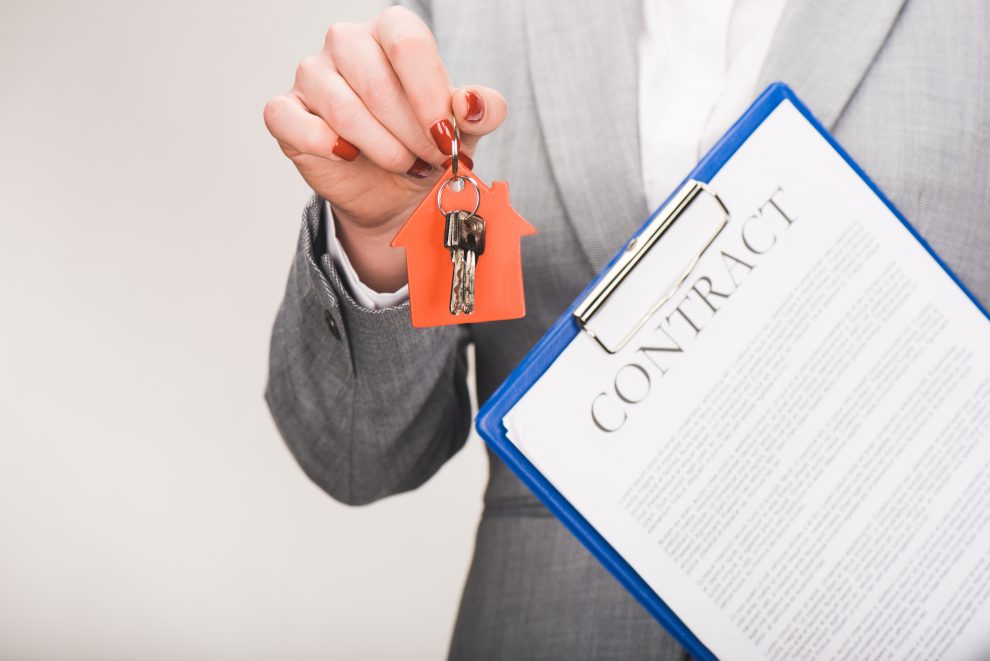So, you want to move out and buy a new property? Buying a house is a long and expensive process but it can be made easier by knowing the right information from the start. Depending on your situation, the process of purchasing your house can take from only weeks to multiple months, but it can be easier to manage with a little bit of help. Here you’ll find our top steps to follow to make your move as easy and stress-free as possible.
Make a list of what is crucial to you
There are few things in a house that really turns it into a home: those are the ones you need to make a list of before even looking for the right property to acquire. For example, you recently adopted a pet so you may need a backward even small to let your pet run around until you can walk them. If you are expanding your family maybe you need a few more rooms or restrooms that you had in your previous home. Do you cook or bake a lot? Then maybe an open kitchen with an island counter is the way to go! This list will help you find what is truly crucial for you in a home, and if need be, to know what to downgrade depending on what is available in the area. And if there is one thing, we learned with Covid-19, is that it is better to feel good at home when the next lockdown strike!
Research the neighbourhood
If you truly have the time before the big move, take a few nights in a local B&B of your desired neighbourhood or city and try to get a feel of the place. Check out (of course after Covid-19) the different restaurants, shops, and commute to see how they will all fit in your new life. Visiting the place as you would on vacation make you more likely to spot the fun little places in the area and to see if you can picture yourself living there. But more than just fun spots, you should also check a few more points to make sure your future purchase is both within-budget and safe.
- Are there good schools around if you have children or plan to have one? If yes, then the property might be more expensive than ones outside of their catchment areas.
- How are transports for the daily commute in the area? Will it be easy to get around the area? If yes, while easily accessible transport is useful, it will push up the property’s value quite a bit.
- Are there any flood zones around or are the crime levels high? You should always check what is happening around the neighbourhood to make sure you will feel safe at home.
- Are there big construction projects coming up in the near future? New developments from the city can be both a blessing and a curse, from new useful service implementation to a new factory that could both increase the noise and air pollution of the area and decrease the property’s value in the future.
Visit properties in person and take notes
While during these times it is a bit more difficult to do, it is crucial to get the feel of the place through your own eyes when thinking of acquiring a property. How can you expect to feel at home if you discover the place on completion day? Make appointments with the previous homeowners to talk about what they liked about the area and the house and why they are leaving it. Talk about what you want this house to mean to you and what is important to you, maybe they will have tips on decoration or house care! Take notes of what you see, and even better take pictures! Is there a damp spot on the wall, or a draft in a room? Keep close attention to what could become a nuisance in the future if you purchase the property.
Find a conveyancing solicitor to accompany you on this project
As soon as you found the right place, be sure to quickly get an appointment with a conveyancing solicitor to talk about the property. Your conveyancer will help you draw up the contract and even before that will take care of the legal aspects of buying a house. They will investigate whether the previous owners have a survey or council certificate to prove that the house is compliant with the regulations in place, and they will order a pest and property inspection of the house, so you don’t have any unpleasant surprises. Your conveyancer will do research on the property and the area to find all legal aspects you need to be aware of, such as catchment areas, zoning, land tax, covenants, or easements. While conveyancing takes a lot of time and (to be fair) quite a bit of money, the results will help you realize a lawful and safe purchase which will definitely help out in the long run.
As your conveyancer finds that the property fit all required norms, they will help you draw up the contract to send to the current owner of the property, as they will negotiate its terms on your behalf. Having the help of a solicitor during this step is crucial to its success: often we forget or overlook crucial points to add to a contract, that only a professional will know to add. When the contract is done, the exchange of contracts with the current owner can be done (aka completion day), and as you both sign the contracts and exchange your respective copies, the property (and the deposit) will switch hands.
After the exchange and subsequent inspections are done, your conveyance solicitor will help you find the correct calculations for taxes, stamp duty or adjustments including strata levies, council rate or water rates.
Take care of your mortgage
Now let us take a step back: do you have the amount necessary to purchase the property? If you are missing some, then you want to look at what mortgage you can afford to help you with the possibly the largest purchase of your life. Most of these loans run for about 25 years but your mortgager could advise you for a shorter or a longer one. To apply for one, they will ask you for proof of your income and expenditures or if you have any debts, so to be sure that you will be able to honour the repayments even if interest rates rise in the future. The type of expenditures that they could ask for range from household bills, child maintenance or other personal expenses. In that sense, make you sure you can afford to repay this loan before going through the process of buying a property. For example, your mortgage could help you define what size of a deposit you want to pay for a property. Keep in mind that the more deposit you have, the lower the interest rate may be.
And finally, when comes completion day…
This is the big day when the seller will leave the property in your hands, and you will be able to truly call this place “home”! Your solicitor will handle transferring your funds to the seller and you will just have to get the keys and title deeds to your new house! Congratulations!
One might argue that this will not be the end of the work with all the moving and redecorating that awaits you, but as far as the purchase process goes, you are now a proud homeowner!








Add Comment